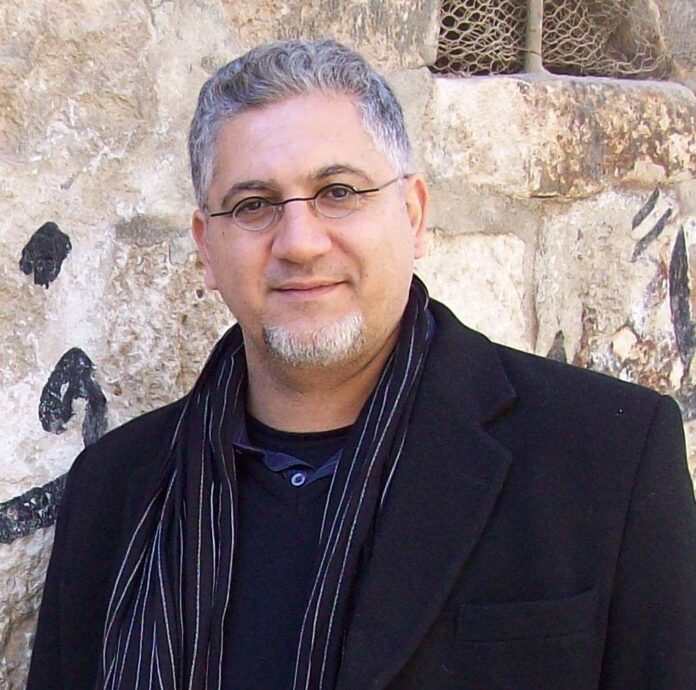SAO PAULO: Brazilian publishing house Tabla won this year’s edition of the Sharjah International Book Fair’s Turjuman Award for outstanding works of translation from the Arabic language.
The prize was granted in recognition of Tabla’s Portuguese-language edition of “Eleven Planets,” authored by Palestine’s national poet Mahmoud Darwish (1941-2008).
The award’s stated mission is to “promote well-established international translations” able to “build bridges that connect the east and the west,” according to the Sharjah Book Authority. Part of the prize goes to the original Arab publisher, part to the foreign one.
“It’s very meaningful for us that they chose to give this prize to a publishing house in Latin America, recognizing particularly the Portuguese language and Brazil,” Laura di Pietro, one of Tabla’s owners, told Arab News.
She emphasized the fact that the awarded book was written by Darwish, who is considered one of the greatest modern poets in the Arabic language.
“Brazil has a great Arab influence, and we want to show our readers that contemporary Arabic culture is close to us,” she said.
Tabla’s prize would not have been possible without Michel Sleiman’s translation of Darwish’s work into Portuguese, which Di Pietro described as “flawless.”
A professor of Arabic language and literature at the University of Sao Paulo, and an expert in Andalusian Arabic literature, Sleiman — the Brazilian-born son of Lebanese parents — discovered Darwish during his graduate studies and realized that learning about his work was a necessity for him.
“Darwish is a central poet of the 20th century,” he told Arab News. “‘Eleven Planets’ shows such great maturity when it comes to form and versification. It has an unquestionable thematic unity, and is a provocative work when it comes to thinking about national identity.”
When Darwish published “Eleven Planets” in 1992, he had been living in Paris for several years, in an exile that had previously included periods in cities such as Cairo and Tunis.
“There, far from the Arab world, he discovered a Palestine that not only existed before Israel but was also a place that preceded the idea of Palestine itself,” Sleiman said.
“He then saw himself as a human being who wasn’t Muslim, Jewish or Christian, but someone who had been part of the dust of that land — Canaan — for thousands of years.”
That was just one year before the Oslo Accords, which Darwish protested by leaving the Palestine Liberation Organization’s executive committee.
It was also the 500th anniversary of the arrival of Christopher Columbus to the Americas. Both events were fundamental in the structuring of “Eleven Planets,” Sleiman said.
The Palestinians’ displacement is at the center of the book’s subject matter. It appears, for instance, through the first poem about the Spanish Reconquista, when the Christians retook Al-Andalus.
It also underlies the dialogue between US President Franklin Pierce and Native American Chief Seattle in 1854 over his people’s right to land — and to existence.
“It’s remarkable that Darwish deals with that theme from the perspective of a Native American,” said Sleiman. “He has a very inclusive eye toward other nations.”
For Brazilian readers, Darwish’s writing — translated directly from Arabic into Portuguese for the first time — is a chance not only to learn more about the Palestinian reality, but also to “get in touch with one of the most renowned contemporary Arab poets,” said Safa Jubran, a Lebanese-born professor of Arabic language and literature at the University of Sao Paulo.
Along with her colleague Sleiman and a few other professors, Jubran has been working for decades to educate a new generation of Arabists in Brazil.
“For years we didn’t have translations. Now, for the first time we have people who can translate directly from Arabic — and they do it very well,” she told Arab News.
Given the size and social relevance of the Arab community in Brazil, it is “incomprehensible that such a work hadn’t been done until now,” Jubran added.
In October, Tabla released one of her works, the translation of Darwish’s “Memory for Forgetfulness.”
It is “a multiplicity of texts, something that’s fascinating,” Jubran said, adding that the book is not only a literary work but also a historical document full of political references.
“I included dozens and dozens of explanatory notes so the Brazilian reader can understand those references,” she said. “I now want to translate all his prose.”
Given Tabla’s success, Jubran’s wish may come true. Di Pietro said the Turjuman Award will greatly help the business overcome the many challenges that an independent publisher faces in Brazil, aggravated by the COVID-19 pandemic.
Di Pietro and her associate Ana Cartaxo plan to annually release 12-15 books, all of them focused on the culture of the Middle East and North Africa.
The catalogue is already defined until 2024 and includes works by Elias Khoury, Adonis and Ibrahim Al-Koni, among others.
“People are very interested in discovering more about the world, and Arab culture generates a genuine interest among many in Brazil,” Di Pietro said.

